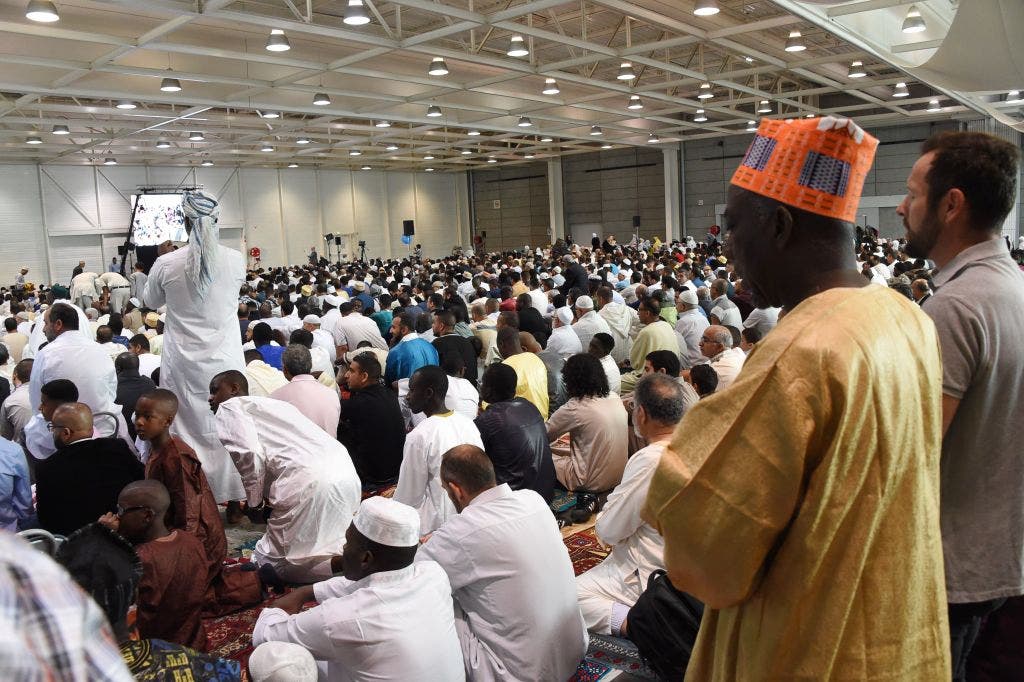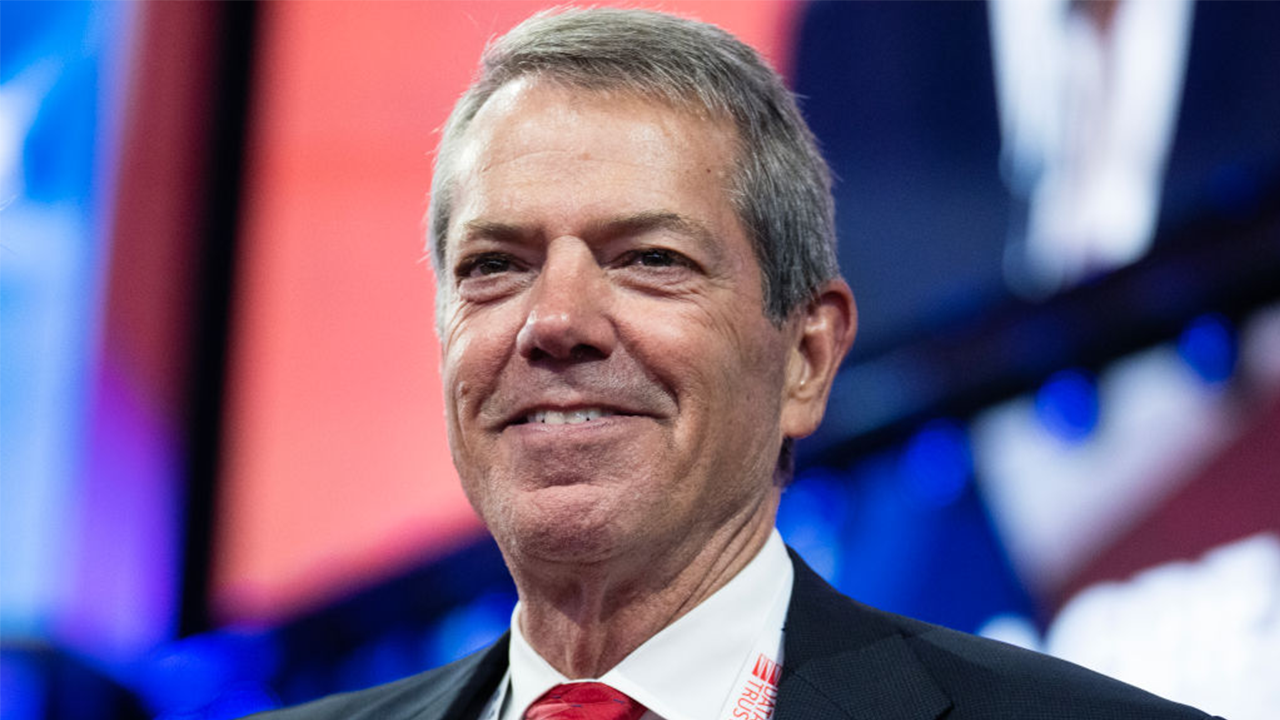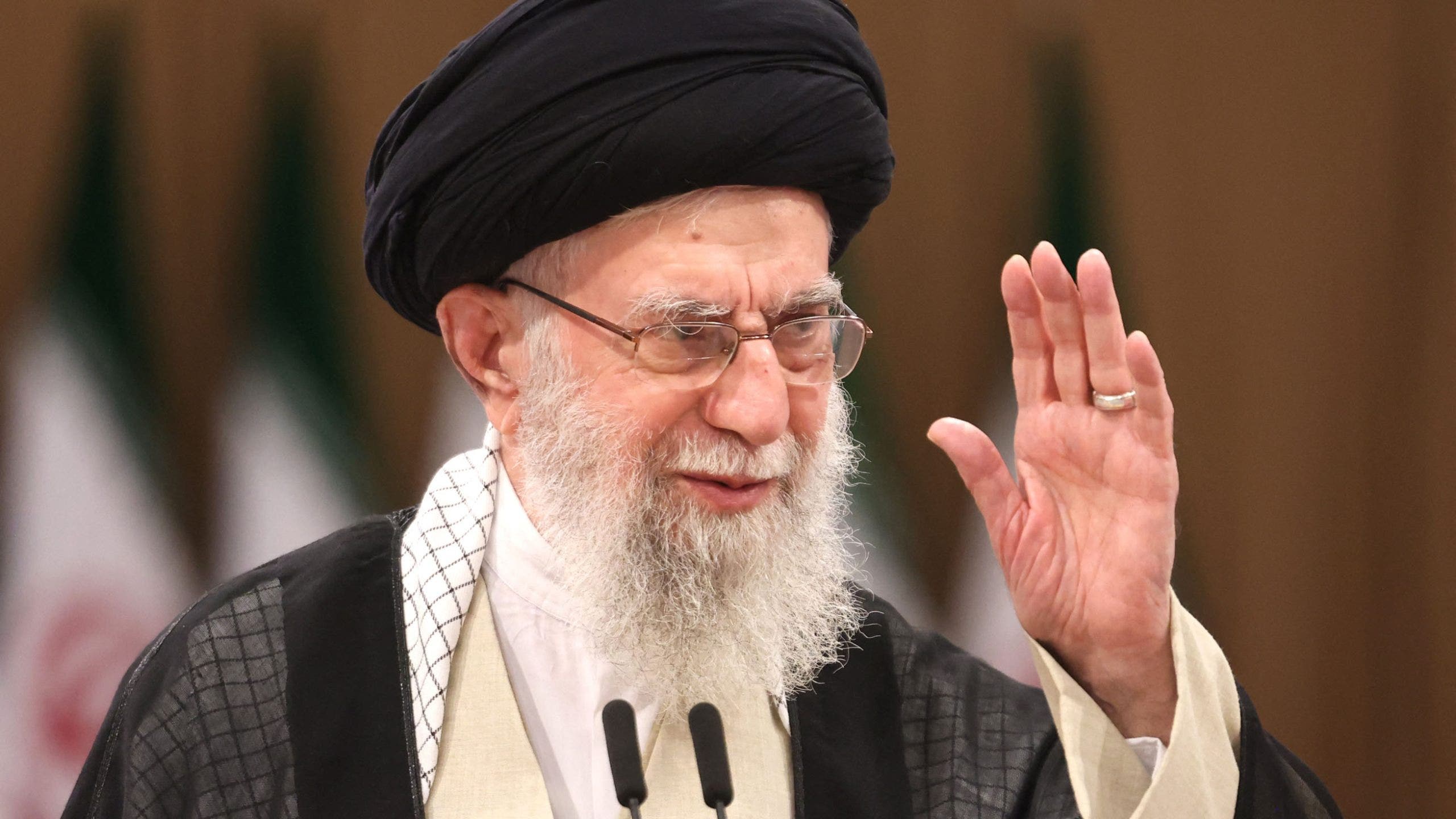A newly enacted law in France aims to reform how Islam is viewed by society.
The law, which bans foreign imams from operating in the country, is an attempt by the government to combat religious extremism in a highly secularized nation.
Foreign imams already in the country will either be sent back to their country of origin or take on new, lower-level positions at local mosques.
The government will appoint religious leaders and others to a body called the Forum of Islam in France, where these officials will help guide France’s Muslim communities and root out any potential elements of radicalization.
FRANCE STRUGGLES WITH SYSTEMIC RACISM AND NEW SECURITY LAW AS PROTESTS ROCK COUNTRY
Students attend a Koran study class at the European Institute of Social Sciences in Saint-Leger-de-Fougeret, central France, Oct. 28, 2020 (Philippe Desmazes/AFP via Getty Images)
President Emmanuel Macron first proposed the initiative in a February 2020 speech that emphasized France’s role in upholding Republican values and warned those values could be undermined by religious extremists. Notably, Macron called out the repressive treatment of women by Islamic extremists, which is antithetical to France’s Republican values of equality.
Macron’s new initiative ends a program, created in 1977, that allowed several Muslim majority countries to send imams to France for cultural and language courses that are not subjected to French government oversight.
Macron contends Imams who are funded by foreign governments may promote what Macron has called “Islamic separatism,” or the idea that France’s Muslim community wants to replace French law and customs with its own religious laws. Critics argue the body, full of political appointees, will not truly be representative of France’s Muslim population.
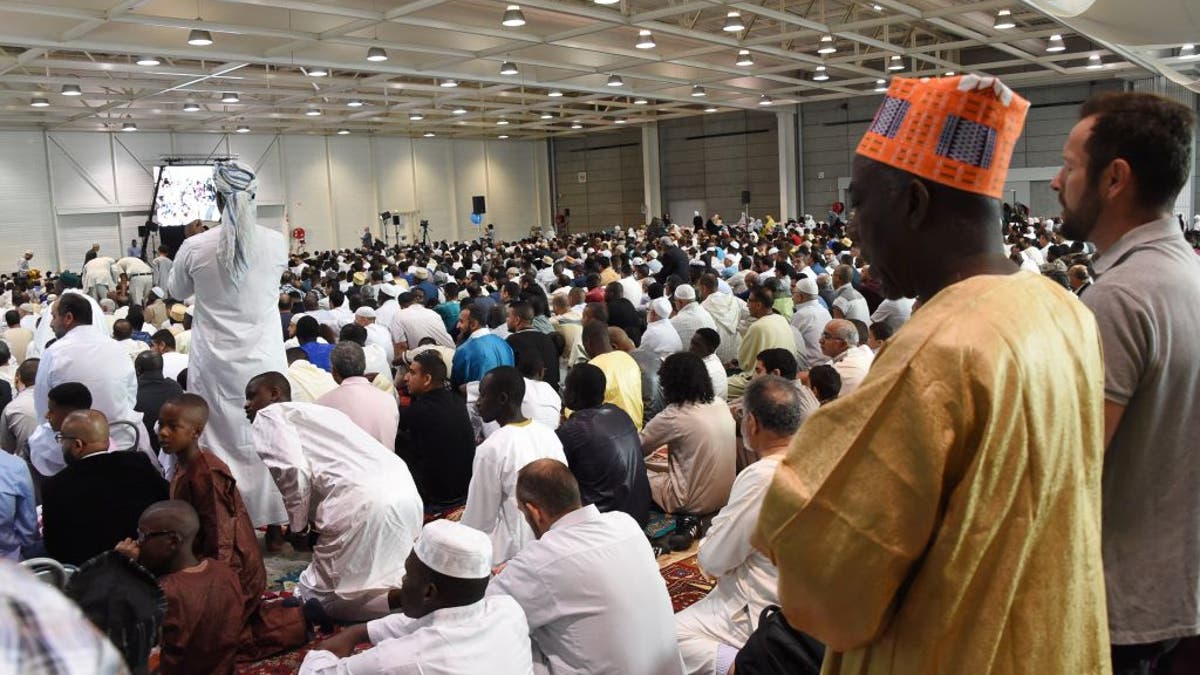
Muslims gather in a room in Bordeaux for Eid al-Fitr prayers June 25, 2017. (Mehdi Fedouach/AFP via Getty Images)
“Some worry about how representative this body is of the French Muslim community, and some worry that this is a strategy for the French to control French Muslims,” Elizabeth Carter, an assistant professor of political science at the University of New Hampshire, told Fox News Digital.
“A more cynical perspective would argue that this was Macron’s response to the growing popularity of the far right and an attempt for him to broaden his party’s appeal to far-right voters,” Carter said.
Supporters claim the initiative will help better integrate France’s Muslim community into society and prevent discrimination.
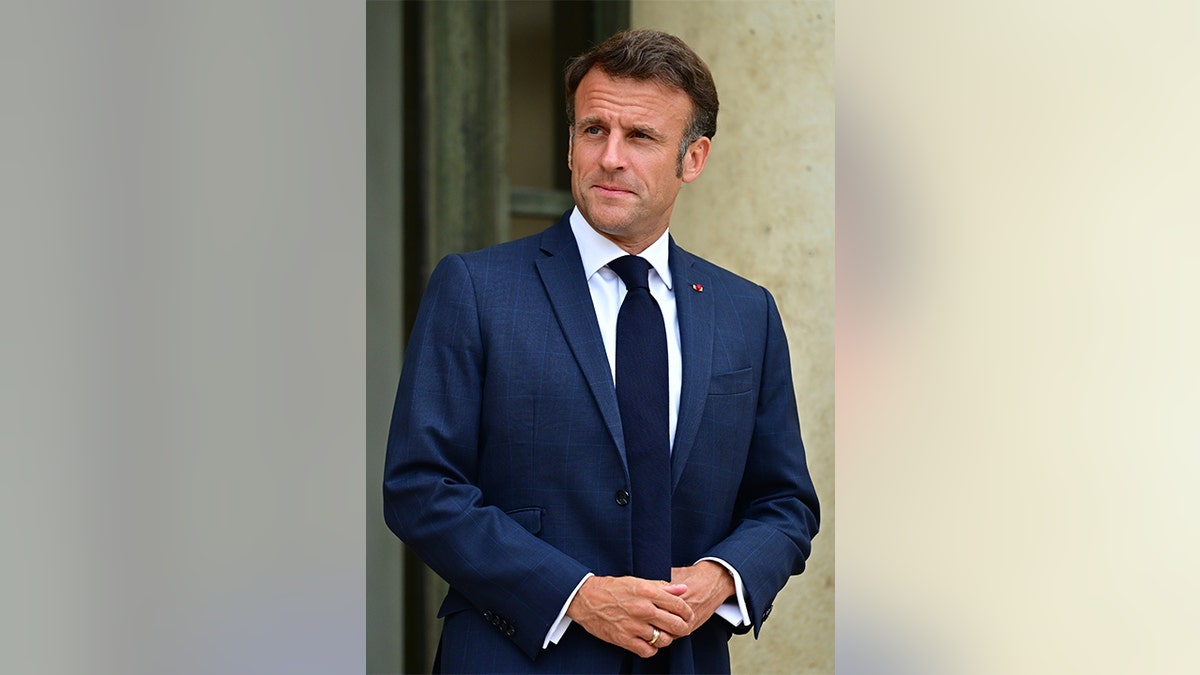
French President Emmanuel Macron (Christian Liewig/ Corbis/Getty Images)
France has struggled with Islamist terrorism in the past and has been a frequent target of terrorist groups. In 2015, French and Belgian nationals with ties to ISIS launched a massive and coordinated terrorist attack in Paris that killed 130 people and wounded nearly 500 throughout the city.
That same year, armed gunmen targeted the office of satirical magazine Charlie Hebdo, killing 12 people, with al Qaeda in the Arabian Peninsula claiming responsibility for the attack. The following year, an ISIS sympathizer drove a truck into a crowd of spectators watching fireworks on Bastille Day in Nice, killing 86 people. Fançois Hollande, French president at the time, ordered retaliatory air strikes against ISIS targets in Iraq and Syria.
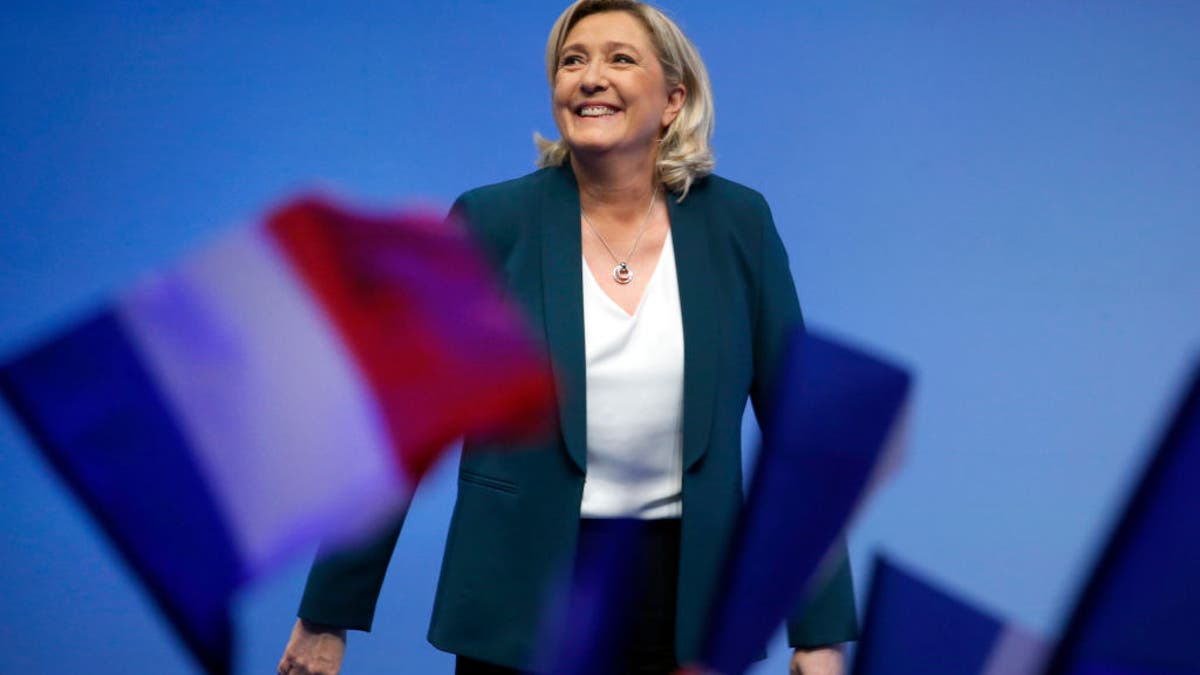
Marine Le Pen, president of the French far-right National Rally Party, smiles to the crowd during a meeting in Paris to launch the RN’s campaign for the European elections of May 2019. (Chesnot/Getty Images)
The attacks, and France’s subsequent response in the Middle East, led to a steady rise in anti-Muslim sentiment throughout France. An estimated 1,910 French citizens would go on and travel to Iraq and Syria to fight for ISIS.
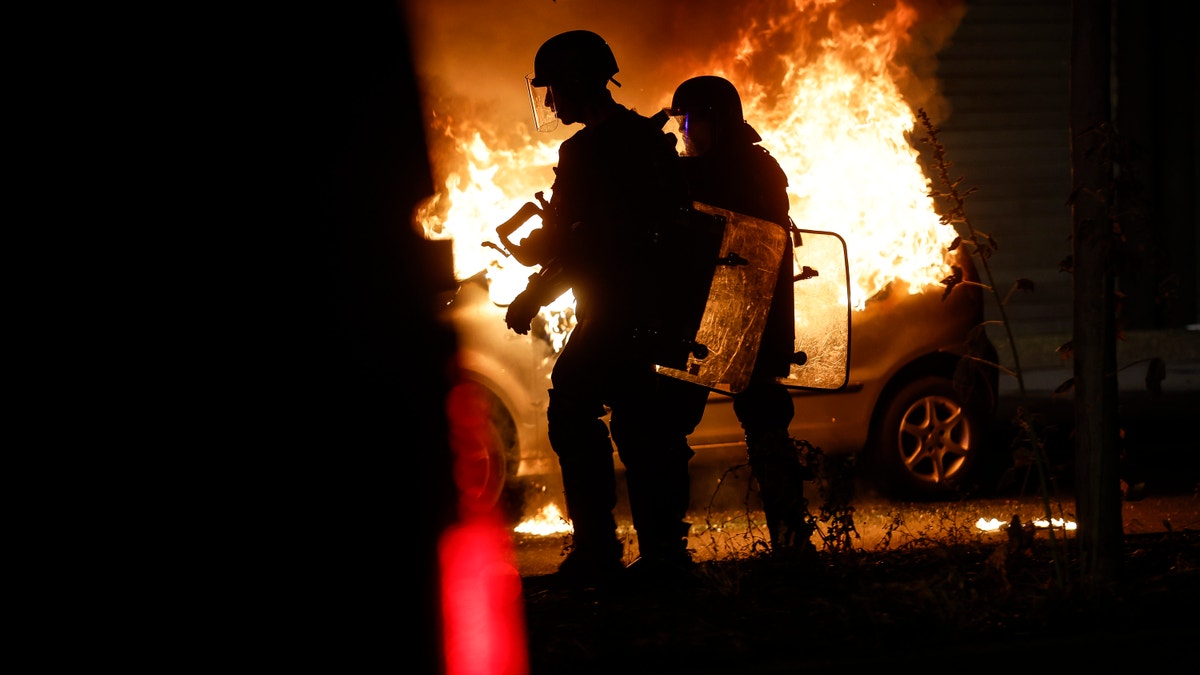
Riot police stand near a burning car in the La Meinau neighborhood of Strasbourg, eastern France, June 30, 2023. (AP Photo/Jean-Francois Badias)
Much like the United States, illegal immigration has become a hot-button issue for French voters. As a secular country, it has struggled with integrating its Muslim population, leaving many feeling marginalized and unrecognized.
As recently as August 2023, France banned traditional Islamic garb from public schools, which many considered a policy to suppress Muslim identity. France passed the Upholding Republican Values law in 2021, which gave the government broad powers to monitor and dissolve religious organizations that promote values that run counter to French Republican values.
Controversially, the law allowed authorities to increase surveillance on mosques and Muslim associations, according to Human Rights Watch.
CLICK HERE TO GET THE FOX NEWS APP
Muslims represent 10% of the population in metropolitan France, according to the National Institute of Statistics and Economic Studies, and comprise the largest population of Muslims in Western Europe. French public policy focuses on promoting French national identity as a means of integrating its minority populations.
Many times, minority groups have complained that it stifles their nationalities and breeds resentment against their communities.


